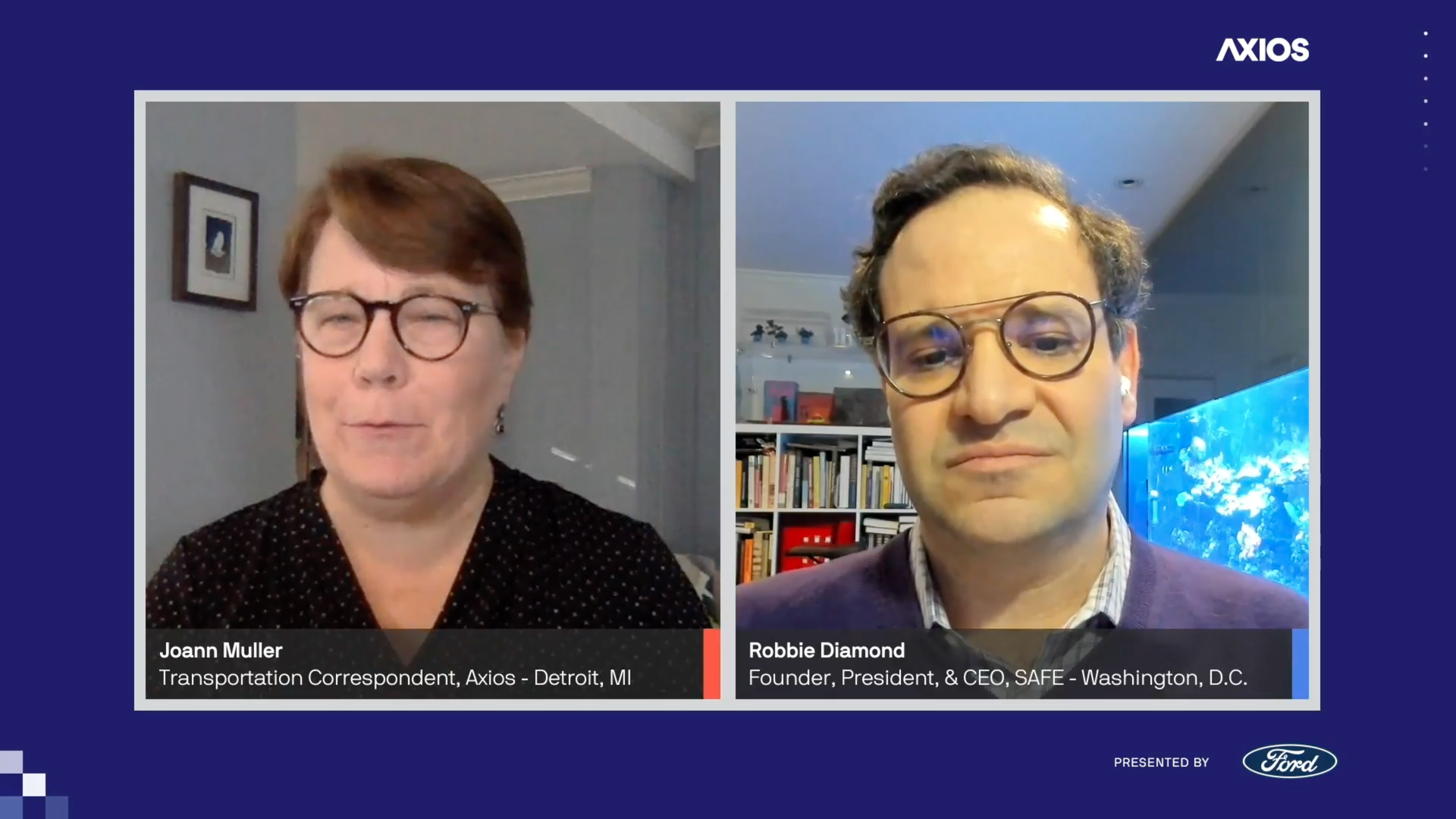Robbie Diamond: U.S. should not depend on China for rare earth minerals
Add Axios as your preferred source to
see more of our stories on Google.

Axios' Joann Mueller (right) and SAFE's Robbie Diamond. Photo: Axios
The United States should wean itself from dependence on China for its rare earth minerals and metals supply, Robbie Diamond, CEO of Securing America's Future Energy (SAFE), said on Friday in an Axios virtual event.
Why it matter: Rare earths are crucial in the manufacturing of commercial electronics, military technologies and the batteries and magnets used in electrical vehicles — and China is the world's leading processor and exporter of those materials.
What he's saying: Diamond said the U.S. should not rely on Chinese exports specifically for the sake of its electric vehicle manufacturers. If China controls the supply chain for rare earths, it will dominate EV production, he added.
- "Unlike oil, I would say, where, you know, our cars will stop tomorrow, this is our manufacturing base," Diamond said.
- "So all we’re saying is we need to worry, from minerals-to-market, about the critical and rare earth minerals that go into these vehicles, the processing of those of those minerals and the component parts from anodes, cathodes, battery cells — all the way to providing the market here in the United States."
- "It's that minerals-to-markets approach that we desperately need and hopefully we'll get in [the Biden administration]."
By the numbers: "95%of the rare earth minerals are processed in China," Diamond said. Those are needed for the magnets for these vehicles."
- "67% of the lithium is owned by the Chinese; 61% of the cathodes, 0% of those are in the United States; 83% of the anodes are in from China, 0% in the United States."
The big picture: The U.S., a primary importer of Chinese rare earths, has sought to reduce its dependence on China after the country threatened to stop exporting the materials to the U.S. in 2019 in response to the trade war and the Trump administration's blacklisting of tech company Huawei.
- In 2020, Chinese exports of rare earths fell to the lowest recorded amount since 2015, though the drop was in part due to the coronavirus pandemic, which damaged global demand for minerals and metals.
- The fall occurred as the Chinese government tried to ramp up production of rare earths by raising its mining quota for the materials over the summer by 6.1% to 140,000 tonnes — a record high for the country and its third annual quota increase in a row.
Go deeper: Watch the full Axios event.

